In my last post I made the case for why we are not, in fact, slaves to nature and our genes. Today allow me to do the opposite.
First let me set the stage. You are on a tiny island – maybe the size of a few city blocks – looking out to sea. You could almost see the west coast of Mexico from the rocky shores, were it just a few miles closer. The only people here are a few fishermen and the occasional Mexican navy boat passing by. But you are not alone, not by a long shot.
Around you are thousands of terns, frigate birds, and every seabird you can imagine. It’s a cacophony of posturing, bickering, and breeding. Life, death, and the struggle for survival, laid bare for all to see. And at the center of it all are the boobies. No, not that kind of booby (Jesus, people, what kind of a blog do you think this is?), the ones with blue feet and freakishly long wings.
A few months ago, I published a story for Hakai magazine about a researcher in Mexico named Hugh Drummond, who has dedicated his entire life to studying booby behavior. Normally, the angle for such a story would be a sloppy version of “hey, look at this crazy guy who studies this crazy thing that will never be of use to anyone!” But that wasn’t my angle because it’s not true.
In fact, Drummond’s work is some of the most profound and enlightening science I have ever come across. And in this post I’ll attempt to show you a glimpse of why that is.
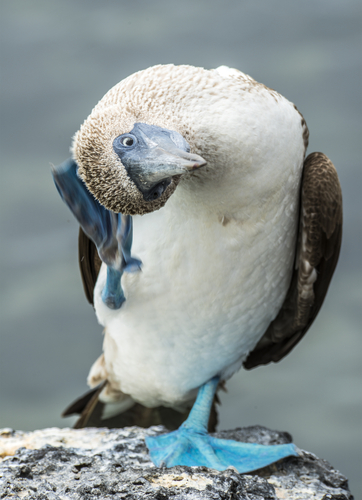 First, you have to understand that boobies are dicks. Seriously, they are profoundly selfish douchebags. Mated pairs cheat on each other every chance they get. It’s so bad that if you remove a male from his nest around the time the female is laying, when he comes back he’ll destroy all the eggs because he assumes his girl has been stepping out on him in the meantime.
First, you have to understand that boobies are dicks. Seriously, they are profoundly selfish douchebags. Mated pairs cheat on each other every chance they get. It’s so bad that if you remove a male from his nest around the time the female is laying, when he comes back he’ll destroy all the eggs because he assumes his girl has been stepping out on him in the meantime.
And probably she has. Booby couples stay together about a year and a half and females are constantly “auditioning” next year’s mate. But the worst are the babies. If you are the first born chick, your only real job is making your sibling’s life miserable. If they make too much noise, peck them in the head. If they get too close, peck them in the head. If they look at your food wrong, peck them in the head. If you’re bored, peck them in the head.
About 20 percent of younger blue-footed booby siblings die because of their elders’ attentions. But they are the lucky ones, since the nearby brown boobies (seriously people, stop snickering, this is serious) kill their younger siblings every time. That’s right, being born a second child in a brown booby household is nearly a death sentence (unless the elder dies of a disease or something, which is probably the only reason the parents have two in the first place).
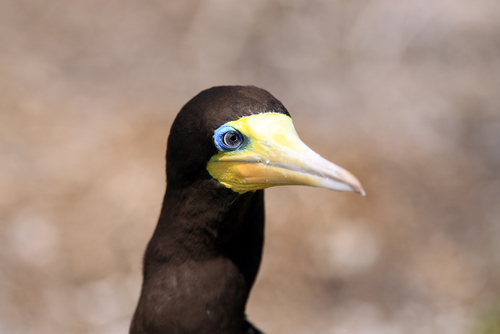 So that’s it. Cute though they may be, boobies are assholes.
So that’s it. Cute though they may be, boobies are assholes.
Except they aren’t. You see all this time I’ve been acting like these are all choices that the birds are making. That somehow their lives are just bacchanalias of debauchery and murder. But in fact the life of a booby is a regimented set of behavioral strategies established over generations by intense natural selection. All of these creatures are following a complicated script that scientists are trying to decipher.
And it’s not that “Nature” or “Evolution” has set up this strategy for the whole species. No, each individual has its own strategy. The female cheats because that is the best way to insure her genes are passed on, not because it’s better for the species. The male kills potentially illegitimate children because it works for him, not because it makes the colony stronger. Genes are selfish by nature, strengthening the species is just a side benefit.
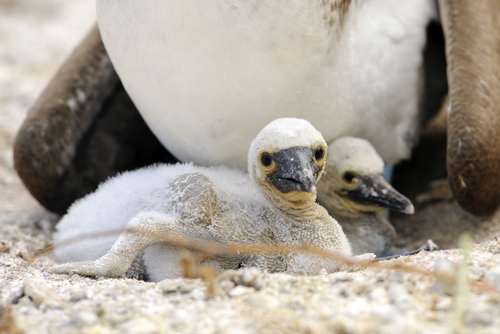 So why has Drummond spent 35 years on a tiny island off the coast of Mexico studying douchebag seabirds? Because this is the essence of who we are. I’m not saying that beneath some thin veneer we are just as bad as these feathery pricks. But our genes are selfish. It’s just that we have also evolved large brains and the ability/need to work well in groups. Our big brains give us he ability to feel empathy, love, and all the great things that make us human.
So why has Drummond spent 35 years on a tiny island off the coast of Mexico studying douchebag seabirds? Because this is the essence of who we are. I’m not saying that beneath some thin veneer we are just as bad as these feathery pricks. But our genes are selfish. It’s just that we have also evolved large brains and the ability/need to work well in groups. Our big brains give us he ability to feel empathy, love, and all the great things that make us human.
But still — in the back of our minds, in the deepest recesses of our genes, in the darkest corners of ourselves there is an urge to be bad. We cheat, we steal, we kill. We crave sugar, territory, power and sex. The entire history of religion is one of humans trying to master their darker urges. The first story in the Bible is one of Man’s fall from divinity – our giving in to selfish temptation. And the second story? That of their child who kills his younger brother.
The Bible was not written on accident, it was the accumulation of hundreds, maybe thousands of years of storytelling. And the story of siblicide – the story of the boobies, if you will – was one of those that resonated with us most. Because, like our desire for sex and sugar, there is a part of use that wants our siblings gone.
Drummond’s work shows that for boobies a lot of this comes down to resources. When food is good, boobies let their siblings live, when it’s not, well, sorry little buddy. (Interestingly, the brown boobies might use more of a “death by cage match” strategy. Every once in a long while a super ninja booby is born that kills his elder and takes over the nest. Badass ninjas are more likely to carry on their genes so everyone wins. Drummond calls it the “desperado” hypothesis.)
Anyone with a sibling has felt some version of this. Yes, you love them, yes, you might even be willing to die for them. But deep down, a part of you competes with them. A part of you wants to kill them just like it wants to have sex with the next person it sees and gorge on bacon-filled doughnuts all day.
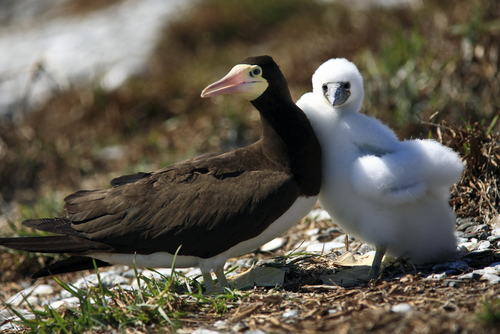
“Sibling competition is very, very widespread. If there are resources for siblings to compete for then expect them to be competing,” Drummond says. “This theory is then applicable to all species. And the way it’s applied to different species will vary with the nature of those particular species. It’s the same body of theory that applies to boobies and to humans. But you don’t expect to find humans killing their siblings because boobies are killing their siblings.”
This is why I love Drummond’s work. It doesn’t tell us who we are. It tells us about the forces that are within us. There is something deeply soothing in that for me. It opens the door for something a little like redemption. Our selfishness, our greed for the best resources, this is a part of who we are. And by acknowledging that, by casting it into the light, it means that our worst natures don’t have to define us. We have the choice to be something better.
I think Robyn Hudson, one of Drummond’s colleagues, summed it up best.
“You’re kidding yourself if you think boobies can predict human behavior. But you’re kidding yourself if you’re sure they don’t.”
Photo Credit: Shutterstock
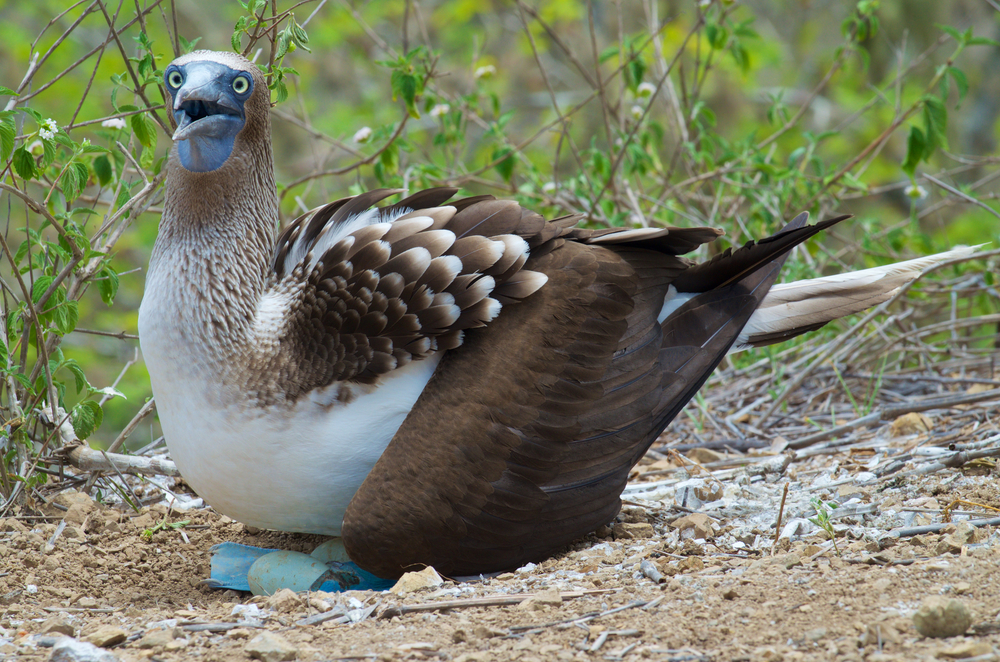
In Erik’s take on boobies, he has got to the core of it: there are inchoate motives lurking in our psyche whose existence is explained by the same theory that accounts for selfishness and tolerance between booby siblings. Even if humans are gloriously flexible and cultural, those motives are there, and it´s intellectually enriching to acknowledge them.
“Intellectually enriching.” Classic Drummond. “Blows the mind” is more like it. But I deep comfort in the knowledge that humans are gloriously flexible.